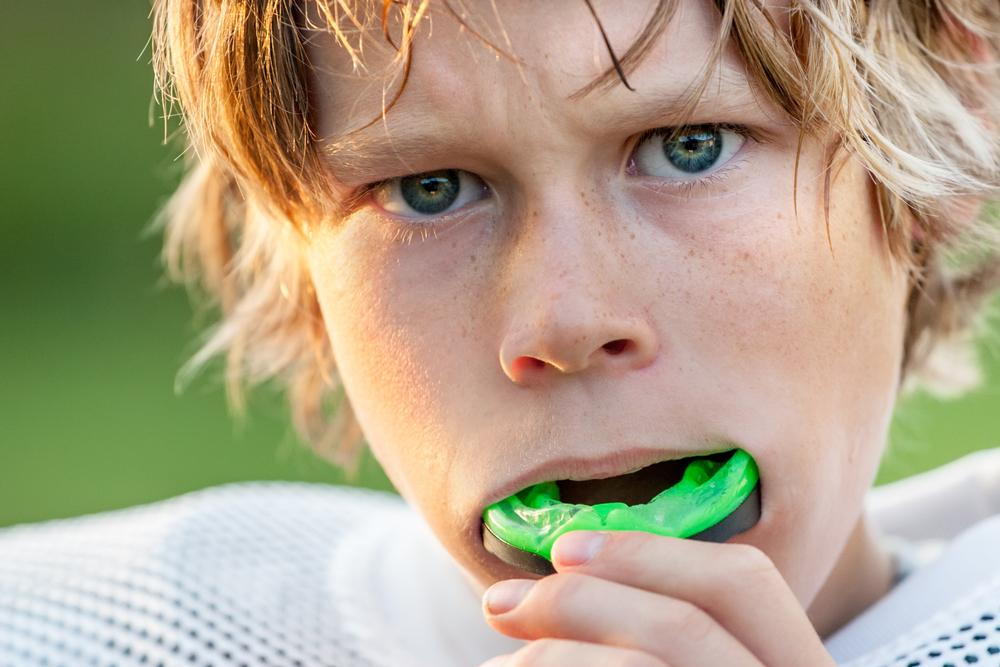
We’ve all seen it happen on television or YouTube, or in real life–a football player getting kneed in the mouth during a tackle; a ground ball hitting a baseball player right in the teeth; a skateboarder colliding face-first into the pavement… There are many ways to sustain a dental injury while playing sports! Fortunately, mouthguards can go a long way toward protecting the mouths of athletes.
What is a dental mouthguard?
A dental mouthguard, sometimes called a sports guard, is a protective device worn inside the mouth. It is fitted to the individual’s mouth so that it can be worn comfortably and safely while staying in place.
A mouth guard covers the upper teeth (and sometimes the lower teeth as well), protecting them from damage. If an athlete receives a blow to the mouth from a ball, a swinging elbow, or an object; or if they fall, a mouth guard can absorb the shock. This may significantly reduce the severity of the trauma.
Which sports call for the use of a mouthguard?
The American Dental Association (ADA) recommends the use of a mouth guard to players of dozens of sports, including basketball, boxing, martial arts, football, soccer, hockey, wrestling, and other contact and collision sports.
According to the ADA, many limited-contact sports, such as skateboarding, baseball, skiing, bicycling, volleyball, and weightlifting, also put the mouth and face at risk. People engaging in these sports may also benefit from wearing a mouthguard.
Is a mouthguard only for protecting the teeth?
Having a mouthguard in place can help protect not only the teeth, but also the lips, tongue, gums, and cheeks from injury. It blocks the teeth from the rest of the mouth, preventing biting and puncturing injuries.
Special mouthguards can be created for people who wear braces. For such athletes, a mouth guard can be especially important because a traumatic impact could otherwise cause braces to snag and tear at tissues in the mouth.
What kinds of injuries can happen without a mouthguard?
Trauma to the mouth from playing a sport can result in serious dental injuries. For example, teeth can be fractured, chipped, or broken. They can also be knocked out. In some cases, a tooth may be displaced but remain in the socket.
Contact sports and many other sports can also result in orofacial injuries (injuries to the bones and tissues of the face and mouth). Trauma can cause an athlete to bite their tongue. A hard blow can lead to jaw dislocation or damage to the temporomandibular joint. It can cause teeth to puncture or tear cheeks and other oral tissues.
How can I learn more about dental protection for athletes?
Would you like to speak with a dentist about dental mouthguards and how to stay safe while enjoying sports? Book an appointment with Gokani Dental Care today! You can reach us at (925) 462-1464. We are happy to recommend mouthguard products to you and answer any questions you might have.
